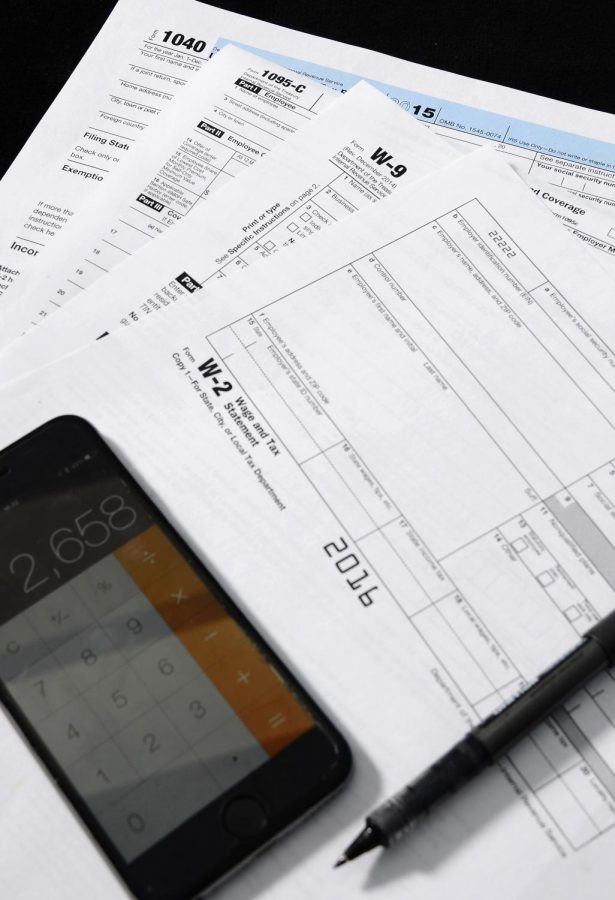Tips on taxes. Are you prepared?
April 15 is tax day. Are you prepared?
By VIRIN: 160119-F-MA978-001.JPG
Be sure to have all your tax forms turned in no later than April 15, 2019. (No changes made to image.)
April 15, 2019
Most adults are probably aware that from the end of January to April 15 of every year is the dreaded tax season. This means the almost three-month time frame is slotted for people to obtain their W-2s, W-4s, receipts for deductions and any other necessary paperwork.
Many college students know that filing taxes is part of ‘adulting,’ but do they know what all it entails? Even for some seasoned adults, filing taxes can be a daunting task. Lucky for amateurs, there are people with careers revolved around taxes.
There are some companies like Jackson Hewitt or H & R Block that have tax preparers on staff to help walk people through the tax filing procedure. Tax paying citizens can also hire a Certified Public Accountant to assist them in filing. Choosing between a tax preparer and a CPA is a very important decision.
The requirements for a tax preparer are a high school diploma or a GED and on the job training. However, a CPA must earn 150 credit hours plus pass a certification test. It would take approximately 50 classes to earn the required amount of credit hours.
Nerd Wallet is a personal financial website and app that, “Aims to assist users in making personal financial decisions.” Their website offers tips for young college students who might be inexperienced with tax filing. A few tips include always filing federal taxes when their paychecks withheld any type of tax and understanding that an individual cannot file their own taxes if their parents filed and claimed them on their taxes.
Students filing their own taxes should also be aware there are certain deductions they can claim in order to get the most out of their refund. The American Opportunity Tax Credit is a credit according to the IRS.gov that is for, “qualified education expenses paid for an eligible student for the first four years of higher education.” The student can be eligible for up to a $2,500 tax credit, which can also include the price of textbooks if the book was only offered at the college bookstore.
It is important to file your federal taxes even if you might owe money. Most students, unless they own their own business, make a lot of money or have side jobs that they don’t claim taxes on their paychecks, will receive refund rather than owe taxes back.
One of the most important tips is to watch out for scams. Nerd Wallet suggests always being skeptical, and if in doubt, contacting the IRS. Filing taxes can be scary, but it is a requirement.


